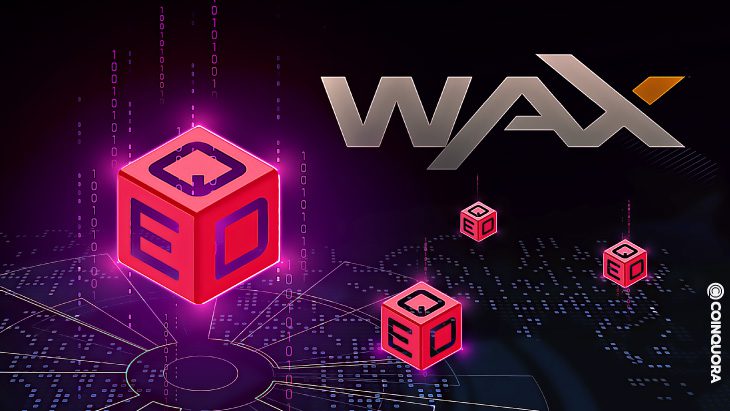- QED network introduces new ways to solve the rising DeFi problems.
- QED oracle protocol designed to function effectively with any blockchain.
- DOS network designed to be scalable, reliable, and secured in mind.
The applications ofdecentralized finance (DeFi) are so vast and expanding that we can barely catch up. With blockchain technology, individuals can carry out financial transactions without the involvement of a middle man like the bank. Such transactions can only take place using smart contracts built on the blockchain.
Smart contracts are pretty efficient and can carry out almost any transaction. However, even with their colorful features, they have some restrictions in terms of capacity. One of such is their inability to access off-chain data.
To effectively utilize the power of these smart contracts, there is a need to feed them real-world data. In response, blockchain developers built oracles to fix this bridge of access. Their functions are to source, vet, and provide real-world data into the blockchain. Even with this elegant solution, many enthusiasts are concerned with these oracles’ scalability and security issues.
The Oracle Dilemma
With each innovation in the blockchain ecosystem comes many problems that need fixing. Blockchain oracles give smart contracts access to real-world data, enabling them to function at their full potential. However, they also pose significant threats to the smart contracts they claim to empower.
The first generation of blockchain oracles was centralized and operated by a single entity. And that contradicts the ethos of blockchain technology, which is trustlessness.
How can a network prove to be genuinely decentralized when a singular entity controls its one genuine connection to the real world?
This is popularly known as the oracle problem. A node managed by just one entity is more prone to attacks. Several centralized oracles encountered devastating hacks in the past, leading to significant losses in the DeFi market.
Additionally, centralized oracles were slow and not entirely scalable. There have been concerns regarding how well they can handle real-world commercial applications.
Luckily, the introduction of decentralized oracles quickly solved this problem. These decentralized oracles retrieve data via several nodes, and then these data are aggregated to provide a unique data value to be delivered according to request. This act will encourage the massive growth of the DeFi ecosystem and uphold a peculiar feature of blockchains: trustlessness.
A solution to these nagging problems
Several decentralized oracles have risen to the challenge of solving the oracle problems. Each offers unique functionalities that promise to help the growth of DeFi. For example, theQED network introduces a novel approach to solving those challenges.
QED is an oracle protocol designed to function effectively with any blockchain. This decentralized oracle features a robust economic model that eliminates systemic risk by ensuring oracles provide external collateral — connecting several blockchains, off-chain data sources, and smart contract platforms.
This oracle protocol provides a reward-based system for participating oracles. It does this by introducing a scoring method that ranks oracles according to their performance, incentivizing the top performers in the system while naturally eliminating the poor performers. QED is a very secure oracle protocol. It delivers accurate data to smart contracts and has proven quite resilient. DelphiOracle, the base software on which QED is built, is regarded as the most widely used oracle on the WAX blockchain. Featuring more than 1,400 actions per hour. While several oracle protocols stopped delivering data to end-users during the event of Crypto Black Thursday, the DelphiOracle kept serving even during this difficult time.
QED can accommodate the ever-growing demand for better services in the DeFi ecosystem. QED executes smart contracts on the UX network, with the ability to handle up to 20,000 transactions per second. This oracle features a data refresh rate of 0.5s, so it allows more decentralized applications that require a faster refresh rate and lower data finality.
Another example isDOS (Decentralized Oracle Service Network). Built with scalability, reliability, and security in mind, it has its share of success in transmitting real-world data to the blockchain ecosystem. It also aims to bring a solution to the computational problems within smart contracts.
Furthermore, DOS renders solutions to the on-chain resource limitations of the blockchain such as high storage cost and computational challenges – in the form of gas limit, CPU time limit, etc.
The network relies on randomness in oracle node selection using the Verifiable Random Function (VRF) and threshold cryptography. With the aforementioned in place, the likelihood of network attacks and node collusions would be minimal, and the network is kept safe for all node operators.


